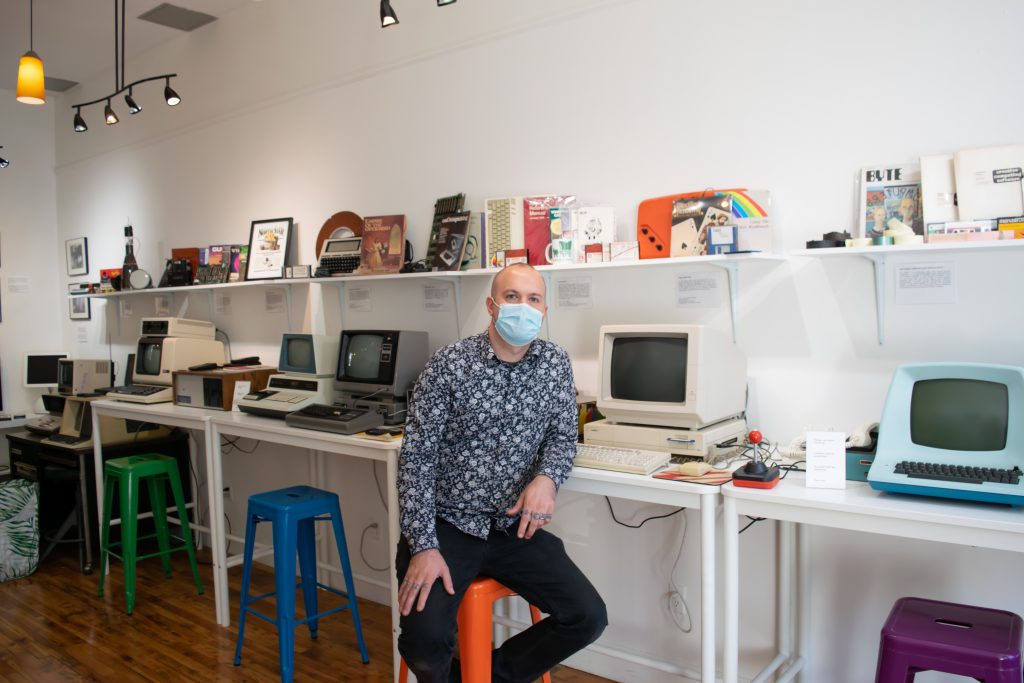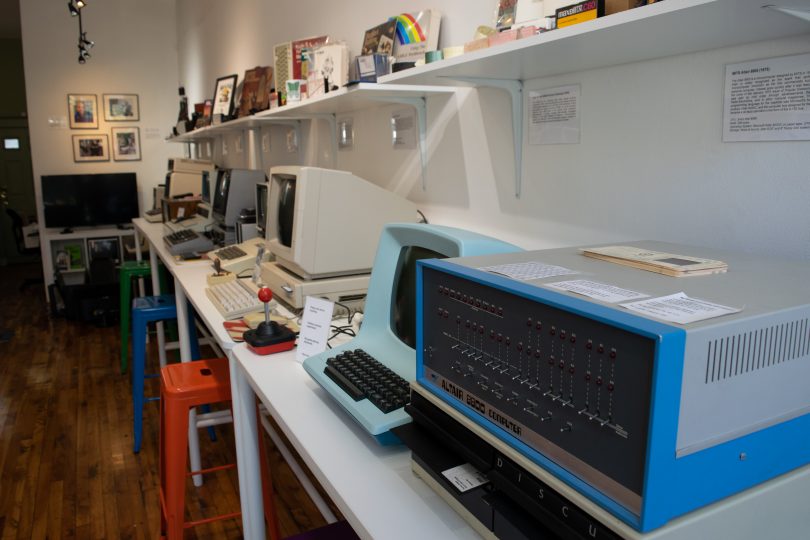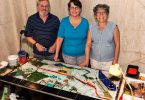By Luciano Cesta
Boston University News Service
When you head into the Byte Shop, in Jamaica Plain, you are not entering any typical computer repair outfit.
The shop, which repairs computers, phones and vintage electronics, is also a computer museum with specimens dating back to 1973. Seemingly ancient but fully functional computers line the walls on both sides of the store.
The collection, which owner Tim Colegrove claims is one of the largest of its kind on the east coast, includes computers like the original Macintosh and the original iMac, notable for its clear, colorful case and ubiquity in school computer labs.
The oldest computer in the collection, the Altair 8800, launched in 1975, spurred the personal computer revolution.
Providing a demonstration, Colegrove shows the Altair is still fully functional, with the computer springing to life with a mechanical whirr after flipping a few switches.
“You had to get your soldering iron out and build it yourself,” he explained. “So there’s a lot of fun wonkiness about these early systems and they’re all very unique.”
Adorned with switches and lights, the computer’s front panel is outlined by blue edges, accompanied by a baby blue monitor and keyboard combination. On the other side of the computer is a teletype — a typewriter that can control a computer and output text — which was another way to interact with it.
Repairs are a core part of Colegrove’s business. He replaces phone screens, recovers lost data and upgrades and replaces hardware components. He believes that he is doing good for the environment and for people’s productivity by performing these services, referring to the act of repairing as a noble and worthy pursuit.

E-waste — discarded electronic devices — is a significant problem. In 2019 alone, 7.3 kilograms of waste was made per capita according to the Global E-Waste Statistics Partnership.
In a report released in June, the World Health Organization outlined the harm e-waste causes to children, both unborn, through their parent, and through laboring themselves. The WHO says that “children are often engaged by parents or caregivers in e-waste recycling because their small hands are more dexterous than those of adults.”
iFixit, an organization that promotes electronics repair and sells tools, says that people are throwing away their electronics because of a lack of knowledge of how to repair their devices.
Repairing devices to prevent e-waste, however, is not always easy. Colegrove is not only concerned about manufacturers who do not provide device schematics to shops, which are essential for certain repairs, but also about what he perceives as a trend towards renting electronic devices as opposed to owning them.
In 2018, Civic Science, a consumer intelligence firm, found that financing is the most popular way of acquiring a smartphone. Colegrove says that renting your phone makes it less legally necessary for companies to provide repair information “because it’s not theirs anyway.”
Colegrove said that he was naturally proficient in IT work and that after a series of positions, including a job as an IT associate at Harvard and as a technician at Apple, he ended up opening Byte Shop.
The COVID-19 pandemic, he said, made him think about what he could do next.
He said that he became interested in vintage computing six years ago and has been restoring old machines ever since. He displayed some of these computers in the museum section of his shop so that the public can learn about them and see the progress that computers have made over the years.
“I think it’s helpful for people to get some perspective on how much the computer has changed,” he said. “Getting that perspective helps us imagine a little bit about what we could do with it in the future.”





